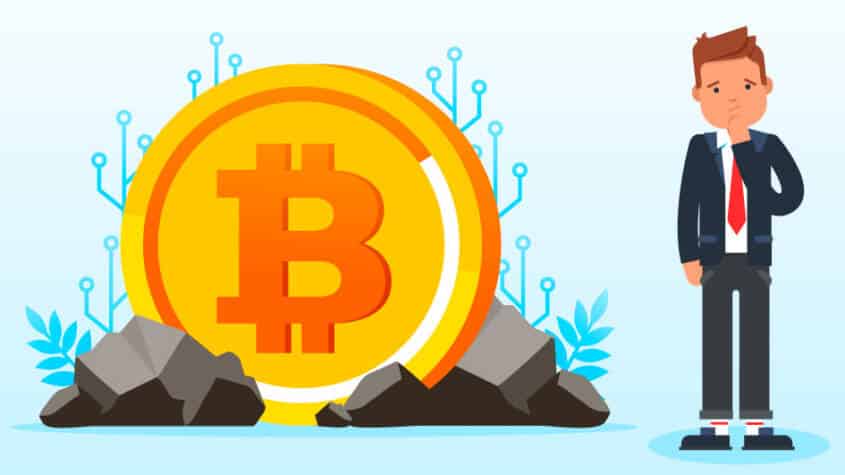
Bitcoin Halving: Why Does It Matter?
Bitcoin halving ensures that the amount of bitcoin that can be mined with each block decreases, making bitcoin more scarce, and ultimately, more valuable. Bitcoin halvings are important events for traders because they reduce the number of new bitcoins being generated by the network. This limits the supply of new coins, so prices could rise if demand remains strong. While this has happened in the months before and after previous halvings – causing bitcoin’s price to appreciate rapidly – the circumstances surrounding each halving are different, and demand for bitcoin can fluctuate wildly.
What is Bitcoin Halving?
Before understanding Bitcoin halving, we must understand what Bitcoin mining is. Bitcoin’s network operates without any centralized authority or planning. Users can send funds peer-to-peer at the cost of minor transaction fees.
Going by the pattern, who do you think wishes to facilitate all the transactions? The answer is miners. By Bitcoin miners, we mean computers that process the transactions occurring on the network. Verifying the transactions’ validity while keeping the network safe is their primary job. Miners are rewarded with new Bitcoins after their creation.
A group of Bitcoin transactions is called “blocks,” and every block is attached to the previous blocks. This results in the formation of blockchain. It takes approx ten minutes for a block to be created. Miners try to find the next block and get its reward.
This brings us to the original topic – what is Bitcoin halving? Once 210,000 blocks are mined on the network or after the completion of four years, the rewards offered to the miners are halved. This results in halving the Bitcoin release rate as well.
This way, Bitcoin manages to form synthetic inflation halving every 4 years until every Bitcoin is released and circulated.
When Does Bitcoin Halving Occur and Why?
Bitcoin halving takes place every four years. It started in 2012, and the most recent one took place on 11th May 2020.
The purpose behind the practice is to gradually reduce the new currency’s supply. This will result in Bitcoin forever remaining a deflationary currency. Experts believe that centralized control in financial ecosystems leads to issues like monetary crisis and wealth inequality.
Halving also results in an increase in BTC’s price. It acts as an incentive for miners to continue their work. If the price does not increase and the supply is halved, the miners will lose the motivation to keep functioning.
Is Bitcoin Halving Good or Bad?
BTC halving is considered to be a vital factor behind Bitcoin’s massive success. It helps Bitcoin remain a deflationary currency with a fixed supply and produced with computing power and electricity.
Unlike traditional currencies, Bitcoin is rare. It makes Bitcoin similar to gold as it has a scarce supply and also needs to be mined. That is the reason why BTC is sometimes referred to as digital gold.
Effects of Bitcoin Halving on Bitcoin Price
BTC halving and its price have a positive correlation as proved thrice already. However, halving is not the sole factor affecting the price. With that said and done, here are the effects of BTC halving on Bitcoin price:
The First Halving: It took place in 2012 when the BTC price remained around 11-12 dollars. Within 12 months of the halving, the price rose to a whopping 1,100 dollars.
The Second Halving: It took place in 2016 when the BTC price revolved around 500-1,000 dollars. Once again, within a few months of the halving, the price rose to 20,000 dollars.
The Third Halving: It took place in 2020 when the BTC price was around 9,000 dollars. The halving shot the prices once again to the 20,000 dollars mark.
However, Investors and crypto supporters are investing in Bitcoin just before Bitcoin halves to make a profit from it. You can also make a profit on a daily basis by using a trading platform like Bitcoin Profit. It is an automated trading platform which helps its members to earn profit daily.
When Is the Right Time to Buy Bitcoin Before or After Bitcoin Halving?
Looking at previous events will reveal the obvious to any rational individual. Whenever a halving takes place, the Bitcoin price surges immensely. Take a look at the evolution of BTC rewards:
2012 – 25 BTC
2016 – 12.5 BTC
2020 – 6.25 BTC
It has been observed that halving increases the BTC price dramatically for a period before it significantly drops, only to slowly gain momentum after some time. Going by these patterns, buying Bitcoin right before halving and selling them within a short time spells huge revenue.
Wrapping Up
Processes like Bitcoin halving are the reason why BTC has managed its market supremacy so far. After the most recent halving last May, Bitcoin was sitting at $8,787 – and in the months since its price has exploded. Over the last few weeks alone, the cryptocurrency has blown past all-time highs again and again and currently sits at around $48,301.
Navigating regulatory challenges in the Nigerian cryptocurrency market
Introduction The CBN has moved to develop a regulatory framework for cryptocurrencies. In …















